Keeping COVID Out of Class
As Atlanta’s Jewish private schools begin reopening their doors, they are confident in their COVID rules and procedures, but prepared to pivot if the need arises.
When Torah Day School of Atlanta reopened Wednesday for a condensed day of in-person classes, it was after much debate, extensive COVID preparations and several plan changes. As recently as two weeks ago, the plan for back to school included a hybrid schedule for middle schoolers with some days at home and others in the classroom. The plan would have set up staggered schedules for parents with several students at TDSA.
Last week the school announced a different model with all students in the classroom, but a shorter day, from 8:30 a.m. to 2:45 p.m. instead of 8:10 a.m. to 3:30 p.m. The start date also was pushed back a day to give students, faculty and staff time to be tested for COVID Sunday and get test results back “to make sure we are not missing anyone who may be asymptomatic, … to start fresh,” said Head of School Rabbi Meir Cohen.
The testing is provided by Jewish HomeLife with assistance from the Jewish Federation of Greater Atlanta.
In addition, the school will begin slowly, starting with kindergarten on Wednesday and adding a grade group a day for the first full week to “try to make sure we get it right,” Cohen said.
TDSA is trying to avoid the kind of scenario that made national news earlier this month when videos surfaced of crowded hallways and not all students wearing masks on the first day of school in Cherokee and Paulding counties. After COVID cases emerged among students and staff at North Paulding High School, the school was temporarily closed. Meanwhile, a second grade classroom in a Cherokee school was also shut down on its second day after a student tested positive for COVID.
Other private Jewish day schools contacted for this story had their own plans for how to keep COVID at bay, most involving aggressive cleaning, social distancing, smaller class sizes and in some cases, staggered return to classrooms and hybrid learning, with some students at home and others in the classroom. We share a sample of the Jewish community’s back-to-school plans.
Torah Day School is banking on its philosophy of a “slow and measured start to the school year” to prevent COVID from entering the classroom, he said.
Health precautions include requiring masks, plexiglass barriers installed between desks, strict social distancing, cleaning throughout the day, remaining in the same classroom, individual supplies for each student, and special air filters to catch and kill viruses. In addition, students will have their temperatures taken as they enter the school each day and be screened with a QR code on their backpack ensuring they completed this exercise, Cohen explained.
If there’s any question or someone is sick, the school has set up an isolation station. “There are a lot of controls in place so that even if someone had COVID, it would not spread.”
TDSA also has built several what-if scenarios into its plans, including contact tracing to inform those who may have been in contact with the person who contracted COVID. Students who become ill can continue to learn virtually at home. That option is also available to families not comfortable sending their children back to school, Cohen said. Webcams are set up in the classroom for that purpose. Less than 5 percent of the 300 students chose that option, he said.
Still, for those a bit nervous, “Part of the preparation is providing social and emotional learning,” he said. “We will provide support through the changes. We will be there structurally and emotionally to make sure it all works out.”
The Atlanta Jewish Academy started back to school earlier this month with face-to-face learning for the youngest students in the Early Childhood Department, lower school and middle school, while the oldest students stuck to remote learning like last semester.
ECD began in person Aug. 13, lower school students, Aug. 17, with options for full remote learning through the end of October. The staggered openings continued with fifth- and sixth-graders Aug. 19 and seventh- and eighth-graders Aug. 24.
High school students began virtually Aug. 17 and return to campus Oct. 12 with a livestreaming option available all year if needed for health reasons.
Head of School Ari Leubitz explained that the reason the ECD students are in-person and the others are not is because the youngest students aren’t as skilled in technology as the older ones. “They need [adult] involvement anyway,” Leubitz said of the ECD children. “It doesn’t really help parents at home and it’s not effective learning. It’s not as much learning as socializing and play at that age.”
The ECD will have their own wing of the school with extra precautions extended to keep them safe and isolated from the rest of the school, Leubitz said. There are less than 100 children in the ECD, 2 years old and up, and they are required to wear masks. They will have smaller classrooms, which allows for less contact, with no other students, teachers or parents able to enter the wing. They will also have their own entrance and carpool, which hopefully will mitigate the risk of interacting with others outside the classroom, he said. “Everyone has some level of risk. When you are home, you can’t totally eliminate the risk. We are just trying to mitigate it,” Leubitz said.
“For starters, the classrooms are reduced by 50 percent, seats are further apart; they have their own markers, crayons, supplies, so they don’t need to reach into the same bins.” The building is sterilized every night; water fountains turned off; and every room has a sanitation station with hands washed before they enter the room.
There are also ropes with markers for the child to hold onto so they walk at a distance from each other, Leubitz explained. The hallways and staircases are also one way, as indicated on the floor.
“We tested all the staff; it is totally COVID free. We are being pretty robust in monitoring the kids daily with a health and safety app, and right now we have no cases.”
And the students seem to be responding well to returning to school during a pandemic, Leubitz said. “Kids are very flexible. I think they are adjusting. If COVID had just happened, the idea of a mask would be different. But they are used to it and understand what a pandemic is. Masks are not foreign, and they have accountability for the mask.”
It’s also quieter in the building, which helps the students feel safe and calm, he said.
Still, Leubitz understands it’s natural to be anxious about the future.
While he believes media reports of Georgia schools without masks have distorted the overall experience, “if someone is not anxious, there’s a problem. I had COVID and on some level, I should have antibodies. Am I going to tell you there’s no anxiety in the building? No … As the leader of a school, to not have anxiety is not being prepared. … Am I confident in our standards? Yes.”
Although he doesn’t have control about what goes on outside of school hours, inside the school masks are non-negotiable and there are behavior expectations, he said. “How we as a community are being responsible and following guidelines is not in my control. But those decisions impact my school and every school institution. My students and staff are in a safe setting when in the building. What happens outside of school hours, that’s what keeps me up a little bit at night.”
The Weber School went back to school virtually Aug. 17 and will continue that way until Sept. 8, when it is scheduled to move to on-campus teaching and learning.
Students and faculty who are unable to join in person at Weber at that time will continue learning and teaching through an integrated virtual program, the school reported on its website.
“Given our ongoing consultation with the Fulton County Board of Health, we are confident that the on-campus plan will fulfill Weber’s mission and standards for educational excellence while meeting the unique health and safety protocols required to mitigate the spread of COVID-19,” Weber stated online.
“The faculty and staff at Weber have dedicated countless hours to prepare our facilities and design new health, safety and educational protocols to enable our return to campus.” In addition, Weber’s board of trustees “approved significant investments beyond the annual budget to lease classroom modules, upgrade air filtration systems and enhance educational technology and other resources to facilitate exceptional teaching and learning for on-campus and virtual learners while mitigating risks associated with COVID-19.”
While excited for the start of school and for the return to campus, “we are also mindful of the fluid and unpredictable nature of COVID-19.” Weber said it would continue to monitor the “latest COVID-19 data and recommendations so that we can make informed adjustments to the plan. With on-campus and virtual learning plans that can be implemented at a moment’s notice, Weber is ready to respond to any eventuality, whenever it may occur during the academic year.”
Students returned to The Davis Academy campus Aug. 17 for live instruction, five days a week. A small percentage of students are participating through a “Concurrent Learning Path, designed to accommodate those who are temporarily unable to be on campus due to COVID-19 concerns, either at the start of the academic year or for a short period during the school year,” Davis stated in a press release.
Just before school began, students and faculty had an orientation week to learn “new systems, daily health and safety protocols, revised schedules and new procedures for their classes.” While the youngest, first grade students “experienced a full-time, on campus schedule, becoming familiar with their classes and teachers,” students in second through eighth grades “spent three days in on-campus learning, and one day in distance learning orientation from home,” the release stated.
“For many the anticipation and the unknowns that decorated the start of this special school year elicited feelings of anxiety and stress. … The Davis Academy’s commitment to both safety and excellence will ensure the students continue to thrive during this most unique school year. Investments in new technology, campus enhancements, additional staffing and faculty professional development will ensure the best possible learning experience for the students, no matter the scenario: on campus, distance learning, or a hybrid, throughout the year,” Davis reported.
About the parents, faculty and staff, the release concluded, “While they are keeping physical distance, wearing masks, avoiding group gatherings, limiting interactions outside of school, and following the Davis Together 2020-2021 protocols and procedures, they are together in their collective commitment to their students and each other.”
Chaya Mushka Children’s House Elementary and Middle School opened the year Aug. 11 with its largest registration in its history, 100 students in grades one to eight, up from 93 last year. “Coming off of its success with the full-day online program at the beginning of the pandemic, many families reached out to see what CMCH had in store for the fall,” the school reported to the AJT. “With a sophisticated system using masks, plexiglass and pods, CMCH has opened its doors for in-school learning stressing both health and high-level learning at the same time,” the school stated.
“It requires creative thinking to ensure a healthy and productive learning environment,“ said Rabbi Isser New, development director of CMCH. Principals Leah Sollish and Elaine Padron stressed the need for “good teamwork” as the most crucial component to a successful year. “If administrators, teachers, parents and students all buy into what the school is doing, then we can hope for success” Sollish said.
So far, that has resulted in no COVID issues, New said.
School began Aug. 10 at The Epstein School with the Early Childhood Program and elementary school students on campus and middle schoolers learning virtually.
“We staggered start dates to allow for smoother transitions for students and teachers,” said school spokeswoman Tali Benjamin. “We have a robust morning carpool procedure that includes health check forms and temperature taking.”
There have been no issues so far, she said. “Students in the 3s and up are wearing masks; we have done building modifications and are stressing proper hygiene, limiting how many kids can be in the bathroom at a time, etc.”
Regardless of how Atlanta’s Jewish schools started the year, the challenge of preparing for opening day during a pandemic has definitely required more flexibility than in the past, said Cohen of Torah Day School. “We are ready for anything [COVID] throws at us. We are ready for all virtual learning. We are ready for a hybrid model; whatever is best and safest for our students. We will adjust. That is our attitude, our theme – flexibility and positivity.”
- Torah Day School of Atlanta
- Rabbi Meir Cohen
- Jewish HomeLife
- jewish federation of greater atlanta
- North Paulding High School
- atlanta jewish academy
- Rabbi Ari Leubitz
- The Weber School
- Fulton County Board of Health
- The Davis Academy
- Chaya Mushka Children’s House
- Rabbi Isser New
- Leah Sollish
- Elaine Padron
- The Epstein School
- Tali Benjamin
- Education
- Community
- Coronavirus
- Roni Robbins



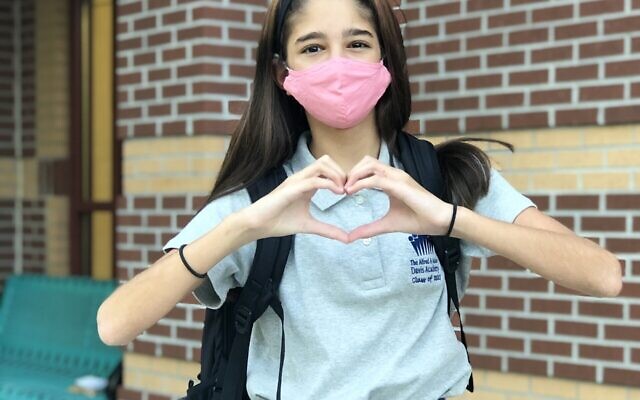

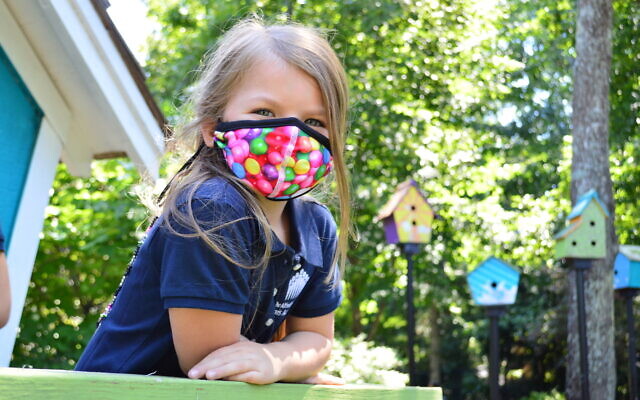
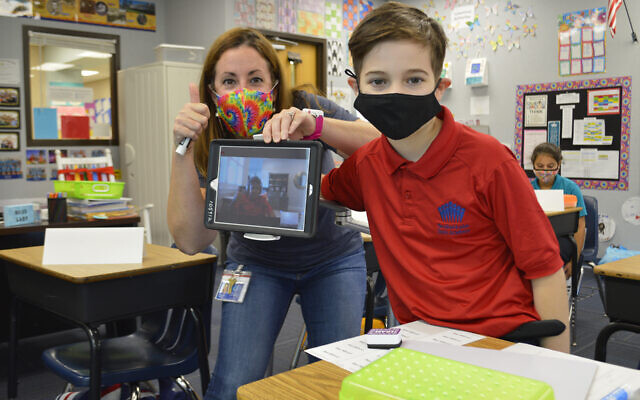
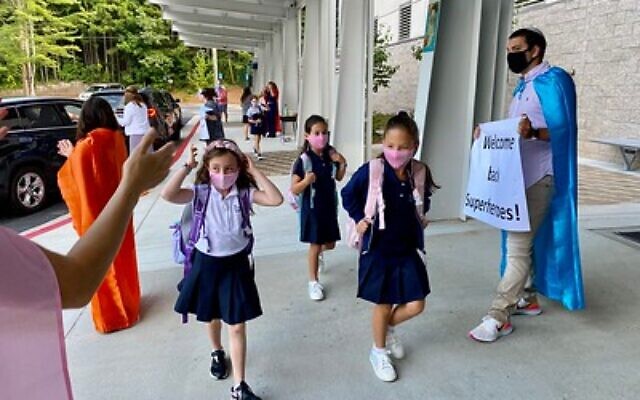
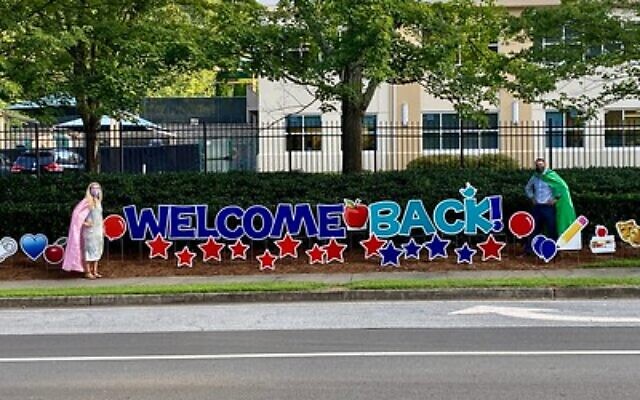
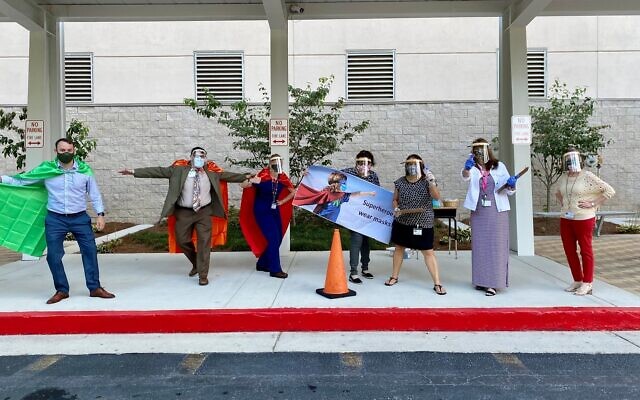
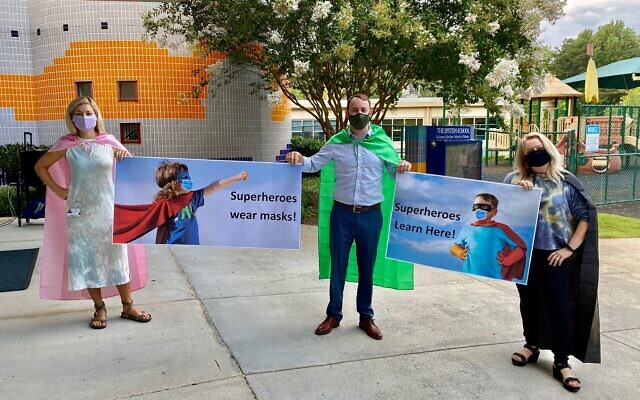
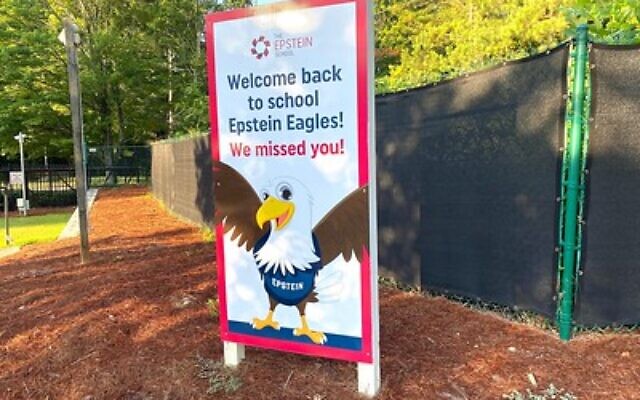
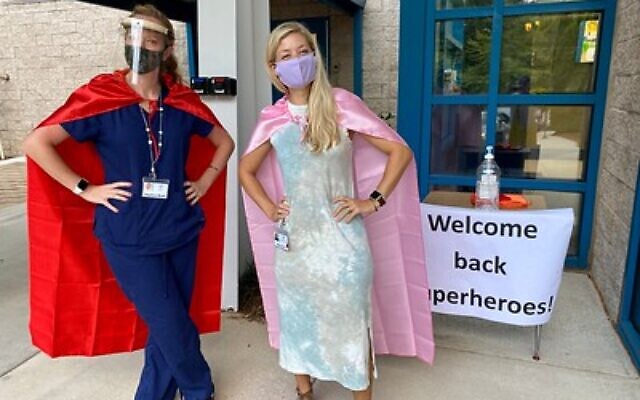
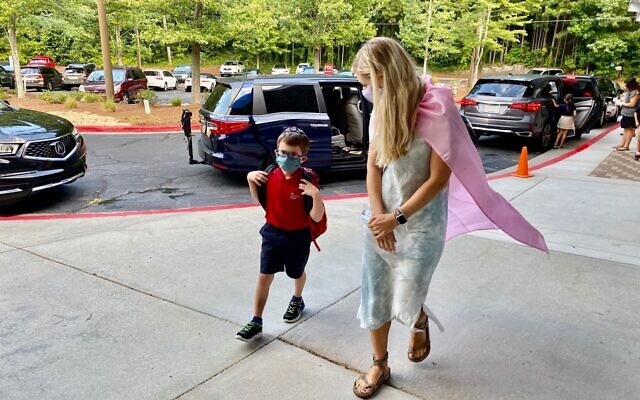
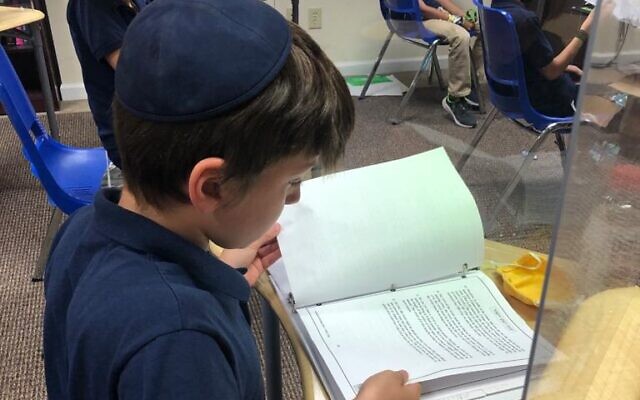
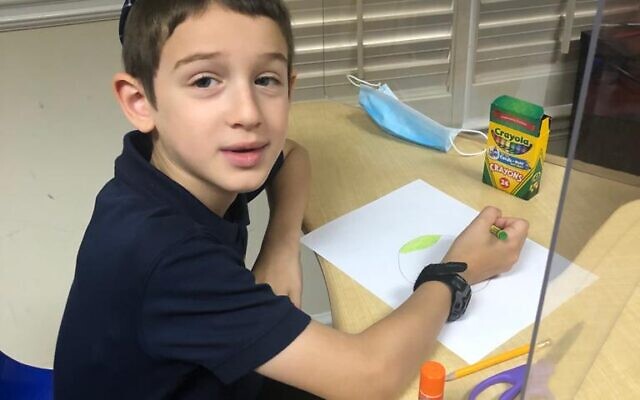
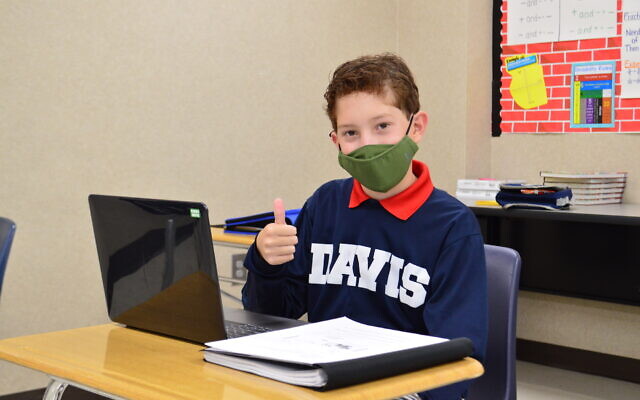
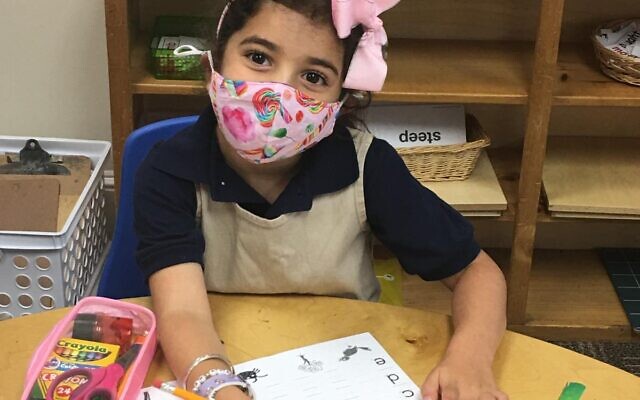
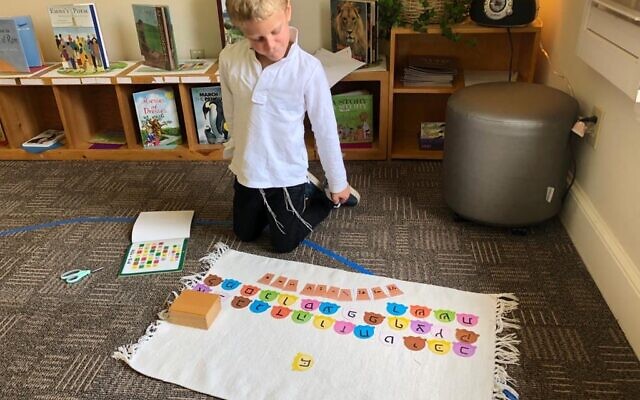
comments